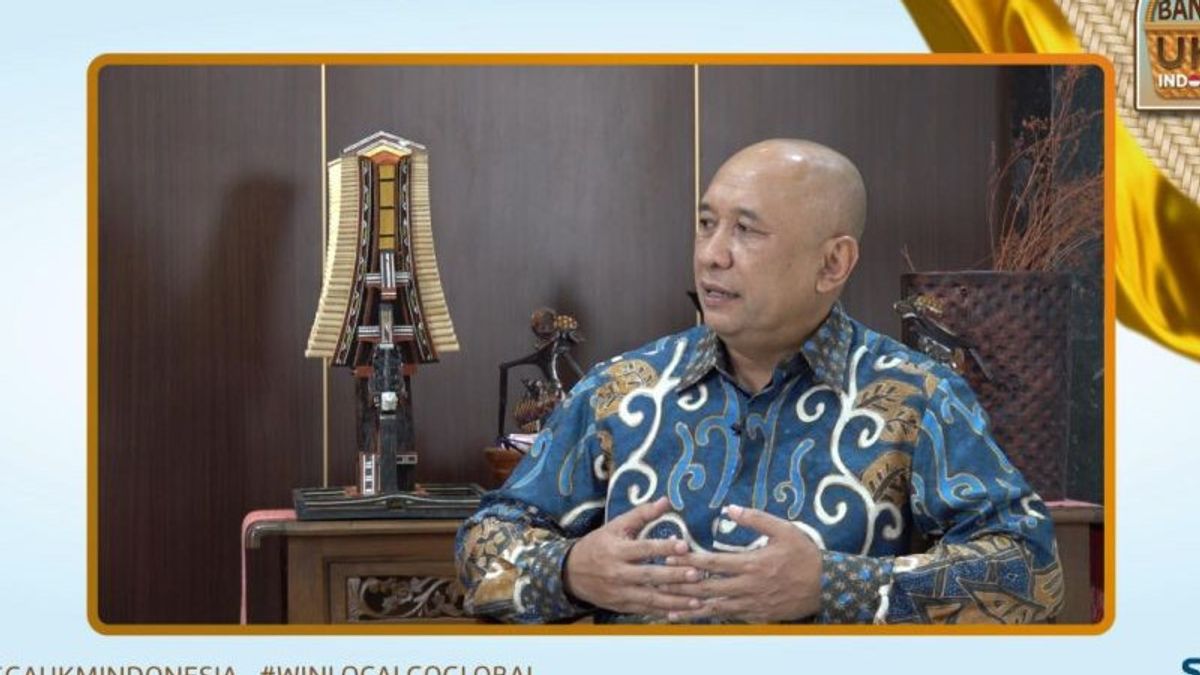JAKARTA - The Minister of Cooperatives and SMEs Teten Masduki appreciates the number of MSMEs managed by women who can still send their children to school and have the potential to create a new generation of established entrepreneurs.
"Some of these women's businesses (MSMEs) are more about the survival economy to meet household needs. But if we look at the role in the family how they can send their children to school with income from MSMEs, we hope that later from their families young people will emerge educated people who can create new entrepreneurs," said Teten Masduki as quoted from Antara, Tuesday, June 28.
Teten reminded, as many as 64 percent of small, micro and medium businesses are women and most of them are engaged in the culinary field.
According to her. MSMEs managed by women are one of the government's targets in order to give birth to 1 million new established entrepreneurs.
"The problem (women MSMEs) is productivity and product quality," he said.
For this reason, said Teten, the government will continue to assist women MSMEs to be able to compete, for example by facilitating access to financing not only for working capital but also for product development.
The government is also developing the concept of clustered SMEs to improve competitiveness and product development.
"We are looking for a cluster model in which SMEs who join the cluster become aggregators such as e-commerce. Within the cluster there is research and development, so that for product innovation there is no need to do everything anymore so it's just production. R&D for product development is done elsewhere. That's the concept of clustered SMEs in the supply chain," said Teten.
Teten hopes that existing SMEs will produce goods that already have a market share.
Moreover, the Coordinating Minister for SMEs reminded that President Joko Widodo has instructed the central and regional governments to allocate 40 percent of the budget to purchase cooperative and SME products.
"The amount reaches Rp 400 trillion and this is a clear market share. SMEs will be guided to produce goods and services whose market share already exists," said Teten.
Post-pandemic, the government not only wants SMEs to recover but also to transform into the digital realm, with a target of 30 million SMEs transforming to digital by 2024, of which now there are only around 19 million SMEs.
The Chancellor of Prasetiya Mulya University Prof. Djisman Simandjuntak said that the digital transformation of SMEs is not only in the logistics sector with a platform as a base.
However, said Djisman, SME production must also undergo technological changes and this is the key to developing small and medium enterprises.
“He must experience technology, the main source of growth is technological change. Now we are facing an era where technology enters all processes needed in business,” said Djisman.
The English, Chinese, Japanese, Arabic, and French versions are automatically generated by the AI. So there may still be inaccuracies in translating, please always see Indonesian as our main language. (system supported by DigitalSiber.id)













